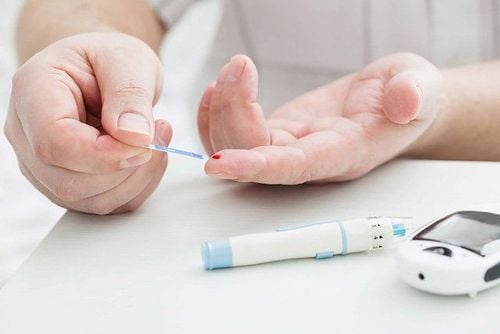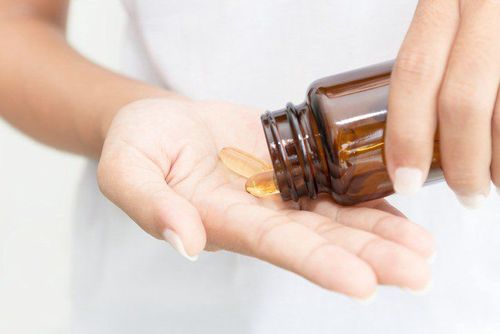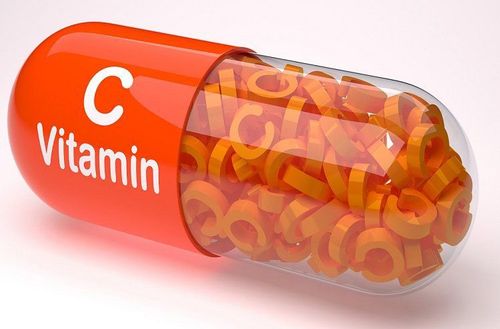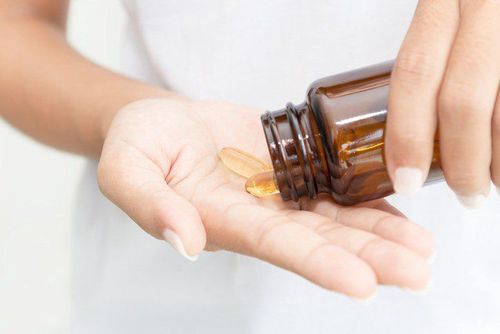This is an automatically translated article.
Alpha Lipoic acid (ALA) is a natural substance in the body and a food source, considered a powerful antioxidant that helps to rejuvenate cells and protect human health. So what exactly does Alpha Lipoic acid do and how is it used?1. Alpha Lipoic Acid Overview
Alpha Lipoic acid is an antioxidant similar to vitamins but many times more powerful. Cell mitochondria synthesize and produce ALA, but in low concentrations and decline with age. Therefore, if people want to receive enough ALA to stay young and beautiful and healthy, people need to supplement this active ingredient from natural food sources, including:
Probiotics; Red meat; Animal organs (liver and kidney); Spinach, broccoli, brussel sprouts, rice bran and potatoes. In addition, Alpha Lipoic acid is also produced in the laboratory for medicinal use. Alpha Lipoic acid is commonly taken by mouth to treat diabetes and nerve-related symptoms, including burning, pain, and numbness in the legs and arms. Your doctor may also prescribe an intravenous (IV) injection, a high dose of ALA approved only in certain countries. What does Alpha Lipoic acid do? This active ingredient is believed to be able to:
Help prevent cell damage and restore vitamin E and vitamin C levels in the body; Improve neurotransmission function in diabetic patients; Break down carbohydrates and create energy for other organs in the body; Is an antioxidant that helps protect the brain and prevent the deterioration of nerve cells.

Nội tạng động vật (gan và thận) chứa nhiều Alpha Lipoic acid (ALA)
2. Uses and effectiveness
Reduce aging: Research in recent years shows that applying a cream containing 5% ALA will reduce wrinkles and roughness caused by sun damage. In addition, using a skin care product containing Alpha Lipoic acid and other ingredients also helps to improve elasticity, reduce wrinkles and roughness of aging skin.
Cardiovascular disease: Health experts say Alpha Lipoic acid has the ability to protect blood vessel walls from the effects of free radicals. At the same time, ALA can prevent the presence of high levels of triglycerides and reduce cholesterol by up to 40%.
Coronary artery bypass surgery (CABG): According to research, taking products containing Alpha Lipoic acid and some other ingredients for up to 2 months before and 1 month after CABG surgery has the effect of reducing complications. due to surgery, while also improving blood flow to the heart/
Diabetes: Taking Alpha Lipoic acid orally or intravenously improves blood sugar in people with type 2 diabetes. However, there is also evidence that this active ingredient does not affect the glycemic index of patients with type 1 diabetes.
Diabetic neuropathy: 600-1800 mg of ALA orally or intravenously improves symptoms of nerve damage in people with diabetes, including burning, pain, and numbness in the legs or arms. . However, it takes 3 to 5 weeks of continuous treatment for the symptoms to improve, if using a lower dose, Alpha Lipoic acid will not have any effect.
Interstitial cystitis: Cystitis in women can cause pain in the entire pelvic area. It is usually treated with the drug amitriptyline, but adding a specific product containing Alpha Lipoic acid, along with certain fats, vitamins, and minerals, helps to reduce general and pelvic pain when sexual relations.
Obesity: Research shows that taking Alpha Lipoic acid for 8 - 48 weeks can reduce body weight in overweight people.

Alpha Lipoic acid có khả năng bảo vệ thành mạch máu khỏi tác động của các gốc tự do
3. Dosage of Alpha Lipoic acid
3.1. Safe Level Alpha Lipoic acid is quite safe for most adults when:
Taken by mouth: Within 4 years, but some people taking ALA may develop a rash; Apply to skin: Use skin cream for up to 12 weeks; When IV IV: For up to 3 weeks. 3.2. Recommended dosage Depending on the purpose of treatment, the recommended dosage of Alpha Lipoic acid for adults is as follows:
Diabetes and associated neuropathic symptoms: Supplement from 300 - 1800 mg of ALA per day. day; Aging skin: Take 2 times a day continuously for 6 months. The product contains 100 mg of ALA, combined with vitamins (C, E, B5) and natural herbal extracts. Alternatively, a facial cream containing 5% ALA can be used twice daily; CABG coronary bypass surgery: Take 100 mg of ALA 3 times daily, in combination with omega-3 fatty acids and other medications as prescribed by your doctor up to 2 months before and 1 month after surgery; Obesity: Take about 1800 mg of ALA per day, continuously for 20 weeks. Children with diabetes and other conditions should only take 300 mg of ALA twice daily in combination with insulin.
4. Some special warnings
For pregnant women: The safe oral dose of Alpha Lipoic acid during pregnancy is about 600 mg daily for up to 4 weeks. It can be started as early as the 10th week of pregnancy and continued until the 37th week of pregnancy is maximum.
For breast-feeding women: There is not enough evidence to show whether Alpha Lipoic acid is safe to use in nursing women.
For children: Taking Alpha Lipoic acid in large amounts is potentially unsafe for children. There have been cases of a 14-month-old girl and a 20-month-old boy who experienced seizures, vomiting and loss of consciousness despite taking a single dose of 2400 mg of ALA.
For patients with diabetes: Alpha Lipoic acid can lower blood sugar, so talk to your doctor to adjust the dose of diabetes medicine you are using.

Alpha Lipoic acid rất có lợi đối với bệnh nhân mắc tiểu đường
For patients requiring surgery: In theory, Alpha Lipoic acid could interfere with blood sugar control during and after surgery. Therefore, ALA should be discontinued 2 weeks prior to surgery.
For people who abuse alcohol / lack of vitamin B1 (thiamine): Alcohol can reduce the amount of thiamine (vitamin B1) in the body. Therefore, taking ALA while suffering from a vitamin B1 deficiency can cause serious health problems. If you drink a lot of alcohol and are taking Alpha Lipoic acid, you should pay attention to supplementing with vitamin B1.
For people with thyroid disease: Taking Alpha Lipoic acid may interfere with treatments for hyperthyroidism or hypothyroidism.
5. Alpha Lipoic Acid Drug Interactions
Care should be taken when combining cancer drugs (chemotherapy) with Alpha Lipoic acid. Experts are concerned that this antioxidant could reduce the effectiveness of some cancer drugs. However, this interaction remains unproven and conclusive. In addition, Alpha Lipoic acid also has a small interaction with diabetes medications because both lower blood sugar levels. Taking ALA along with diabetes medications might cause a patient to get their blood sugar too low. Therefore, it is necessary to closely monitor the blood sugar index to make appropriate adjustments.
Overall, the antioxidant Alpha Lipoic acid (ALA) is responsible for destroying free radicals, preventing harmful effects to human health and helping to rejuvenate the body. Alpha Lipoic acid is produced from cells in small amounts and decreases over time, so it is recommended to supplement with ALA from natural food sources in combination with pharmaceutical dosage forms as prescribed by your doctor.
Please dial HOTLINE for more information or register for an appointment HERE. Download MyVinmec app to make appointments faster and to manage your bookings easily.
Reference source: webmd.com












